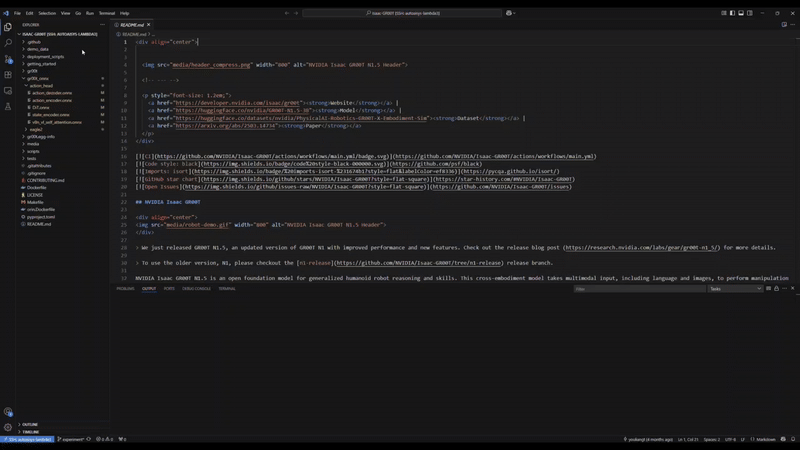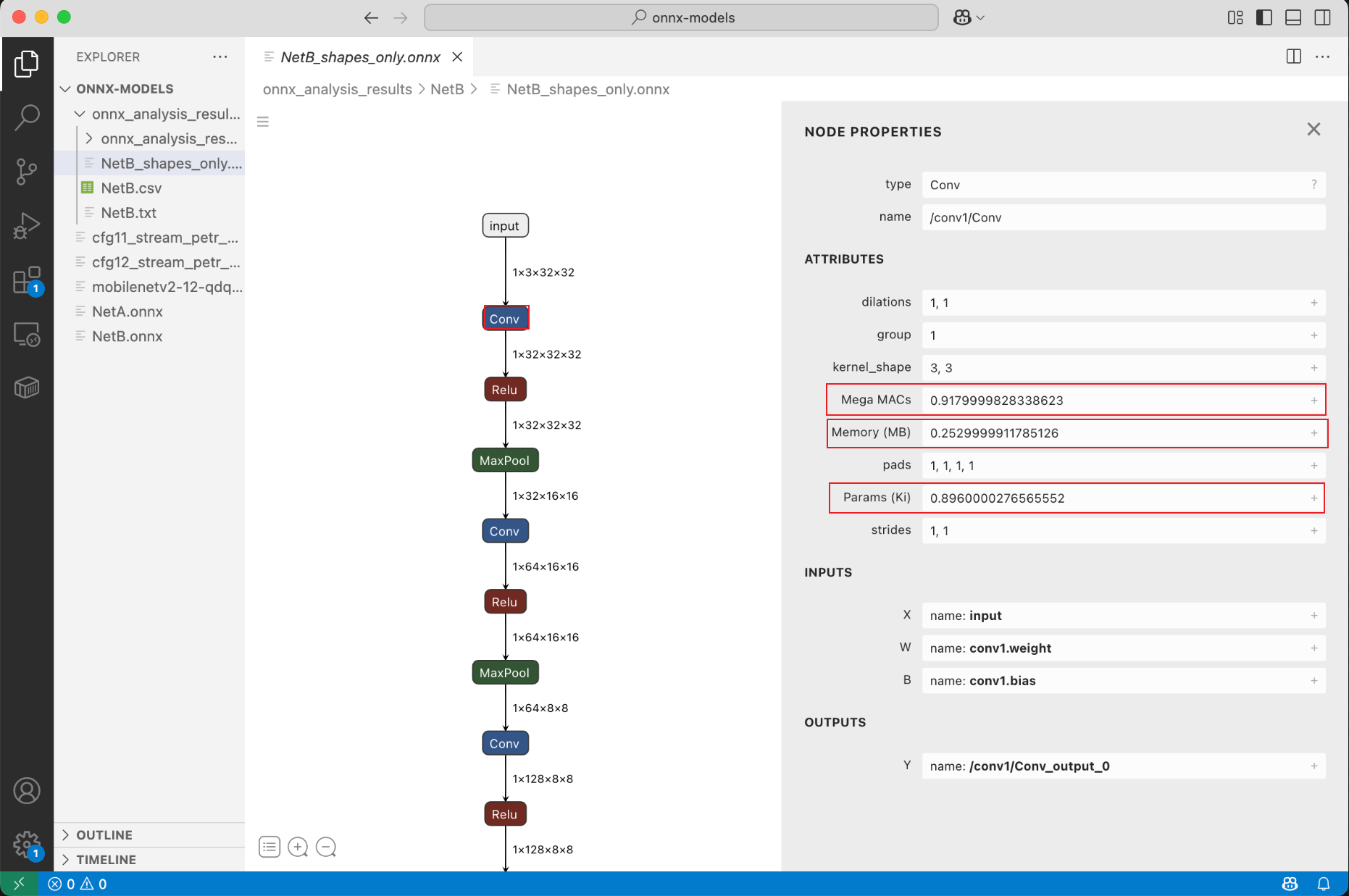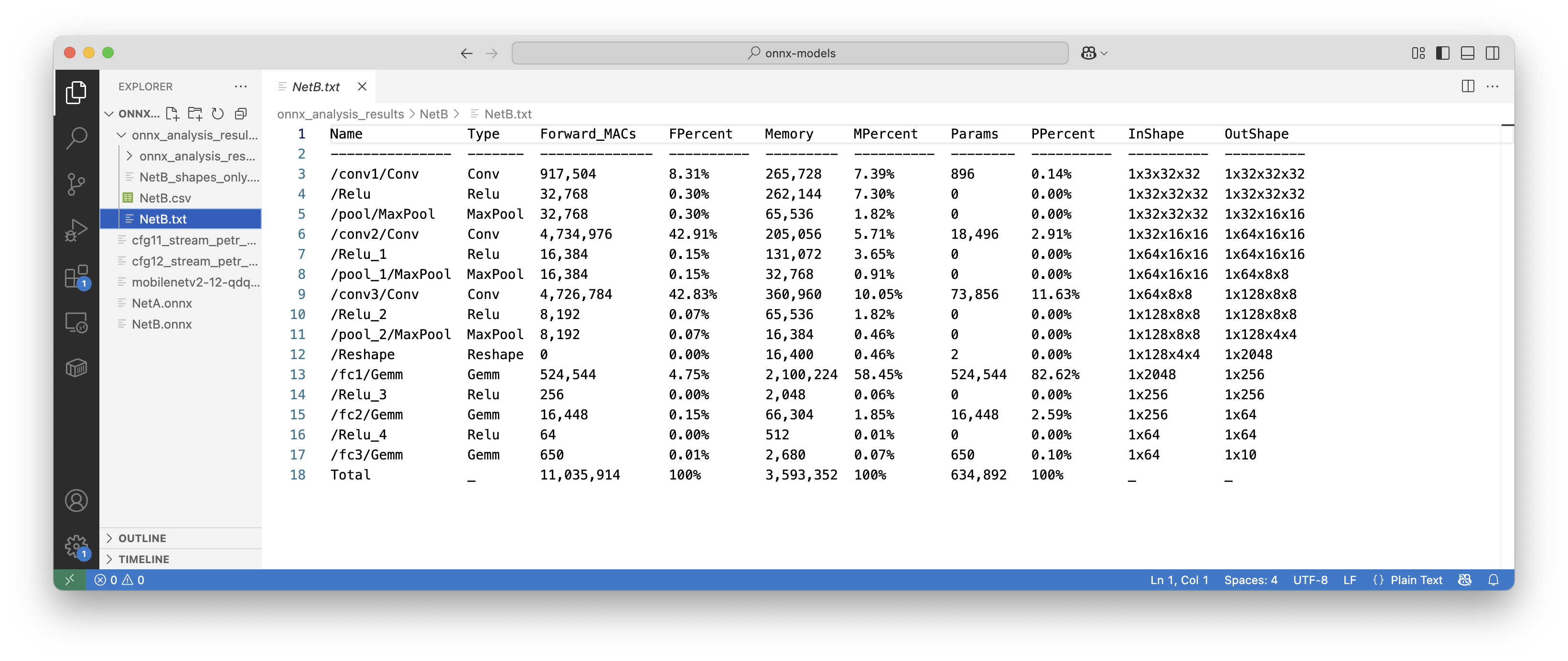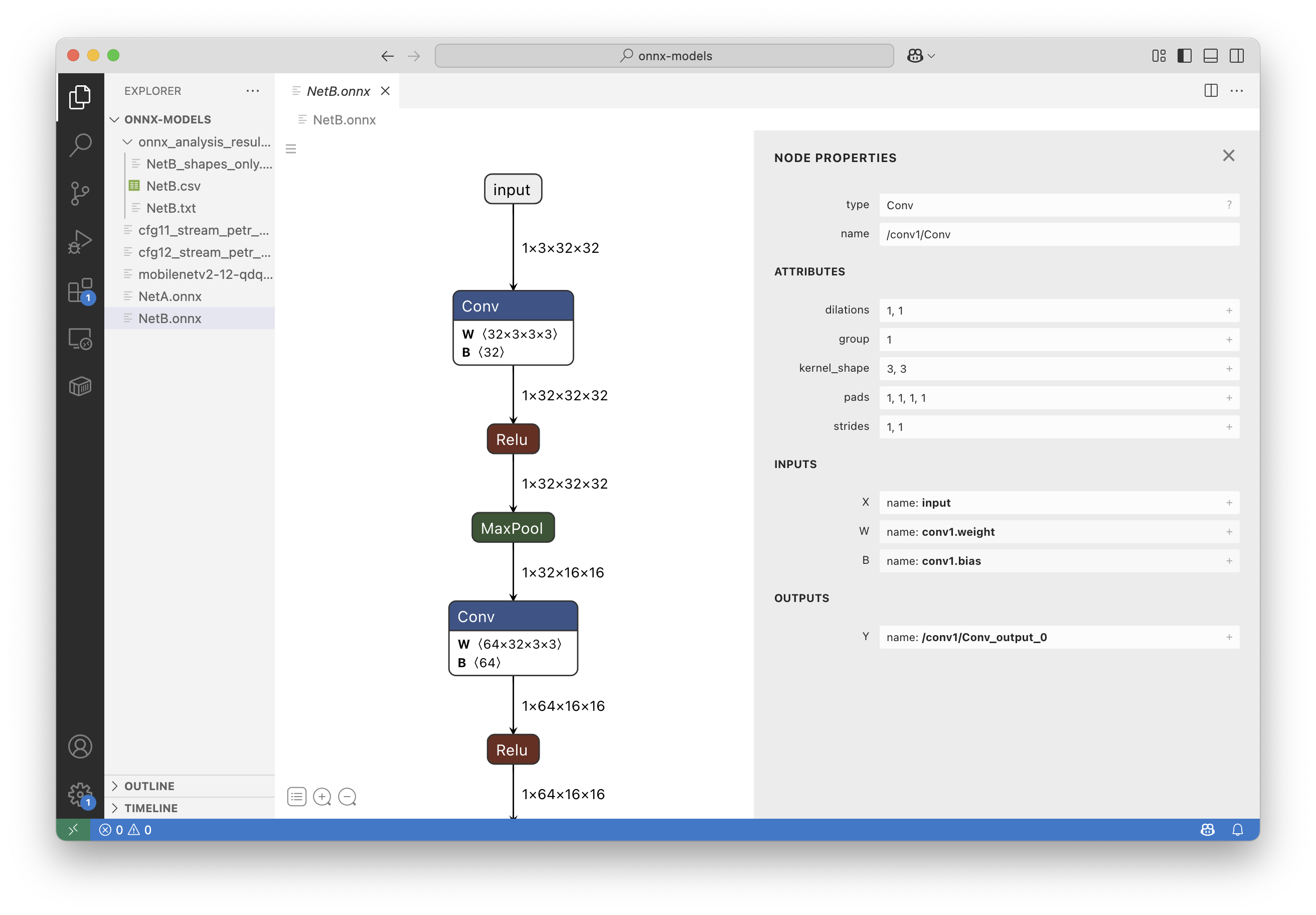QTron - ONNX Viewer with Integrated Analysis
A lightweight VS Code extension for viewing and analyzing ONNX models with seamless onnx_tool integration.
Inspired by Netron and ONNX Viewer but optimized for autoaisys workflows.
Why was this developed?
- Load Large models faster (we are impatient like that :P); Strip the weights.
- Profile the ONNX model (lets make our lives simpler).
- I would like to automate mundane tasks in my life. Thus automated the flow.
All this happens with just a click to view an ONNX file—yep, that’s what I’ve been dreaming about lately, and I finally cooked this extension!
NOTE: Loading a model for the first time might take a might more time, but post to which you can happily load the lightweight profiled onnx model.
📁 ONNX File → 🚀 strip_and_profile_model() → 👁️ Visualize
↓ ↓ ↓
Original [Simplify + Analyze] Interactive
Model ↓ Viewer
📦 Weights Stripped [LightWeight Profiled Model]
Profiled for
MAC, Memory, Params (.onnx)
📄 Reports (.txt, .csv)
Qtron in Action


Weight Stripped/Profiled ONNX
 Layer Wise Profiling Data
Layer Wise Profiling Data
 Simplified ONNX
Simplified ONNX
✨ Key Features
🎯 One-Click Analysis: Simply open any .onnx file in VS Code
- Automatic model simplification for cleaner visualization
- Integrated onnx_tool profiling with detailed metrics
📊 Comprehensive Analysis:
- Layer-wise MAC (Multiply-Accumulate) operations counting
- Parameter count and memory size analysis
- Export to TXT and CSV formats for further processing
- Shape-only ONNX files for efficient analysis
- NEW: Advanced dynamic shape handling for models with variable inputs
⚡ Smart Defaults:
- Results saved next to your ONNX file automatically
- Graceful fallback when advanced tools unavailable
- Intelligent handling of dynamic batch sizes and sequence lengths
- Configurable through VS Code settings
🔧 Configuration
Access settings via VS Code preferences (qtron.*):
| Setting |
Description |
Default |
qtron.pythonPath |
Python interpreter path |
"python" |
qtron.enableSimplification |
Enable ONNX simplification |
true |
qtron.enableOnnxToolProfiling |
Enable onnx_tool profiling |
true |
qtron.onnxToolResultsPath |
Analysis results directory |
Auto-detected |
qtron.enableDynamicShapeHandling |
Smart handling of dynamic input shapes |
true |
📁 Analysis Output
When onnx_tool profiling is enabled, you'll get organized results:
your_model_directory/
├── your_model.onnx # Original model
└── onnx_analysis_results/
└── your_model/
├── your_model_profile.txt # Human-readable summary
├── your_model_profile.csv # Detailed metrics (Excel-ready)
└── your_model_shapes_only.onnx # Shape-optimized model
🔄 Processing Workflow
QTron follows an optimized processing pipeline:
Integrated Workflow (onnx_tool enabled):
📁 ONNX File → 🚀 strip_and_profile_model() → 👁️ Visualize
↓ ↓ ↓
Original [Simplify + Analyze] Interactive
Model ↓ Viewer
📄 Reports (.txt, .csv) [ LightWeight Profiled Model]
📦 Weights Stripped/
Profiled Model (.onnx)
Fallback Workflow (simplification only):
📁 ONNX File → 🔧 Simplify → 👁️ Visualize
↓ ↓ ↓
Original Simplified Interactive
Model Model Viewer
Optimization Benefits:
- ✅ Single-step processing eliminates duplicate simplification
- ✅ Automatic fallback handling for maximum compatibility
- ✅ Preserves original files while generating analysis
📦 Installation
Build:
git clone https://gitlab.qualcomm.com/sathyapr/qtron
cd onnx_viewer
./regen.sh
Installation
# If you are feeling lazy download the .vsix I have genearted
./extension/qtron-*.vsix
🚀 Usage
- Open any
.onnx file in VS Code
- QTron automatically processes the model:
- Simplifies for better visualization
- Runs comprehensive analysis (if available)
- Opens interactive viewer
- Find analysis results in
onnx_analysis_results/ directory
💡 Contributing
Have suggestions or found a bug? We'd love to hear from you!
- Open an issue on GitHub
- Submit a pull request
- Try to fix it on your own or ping me on Teams and buy me a coffee, we can debug together :P




 Layer Wise Profiling Data
Layer Wise Profiling Data Simplified ONNX
Simplified ONNX